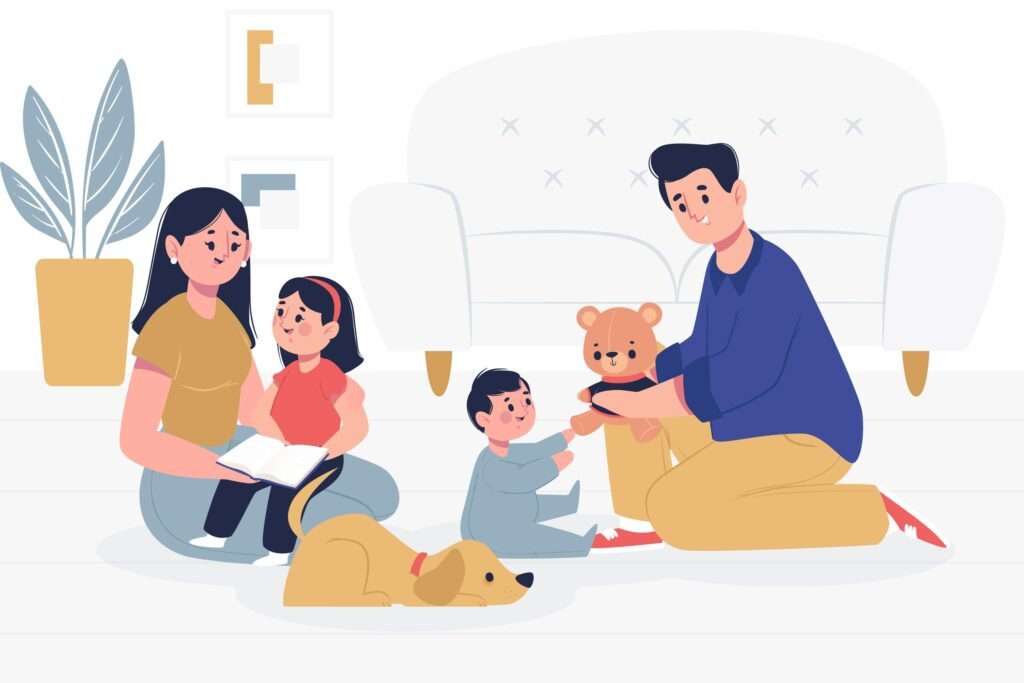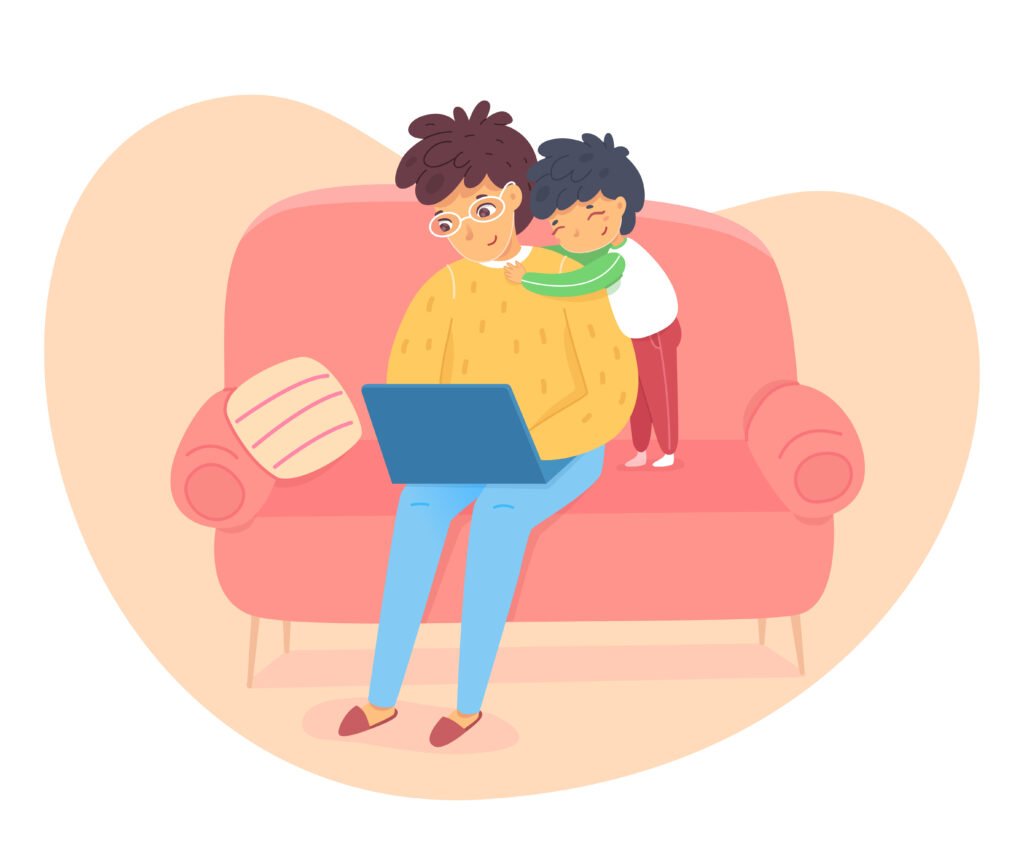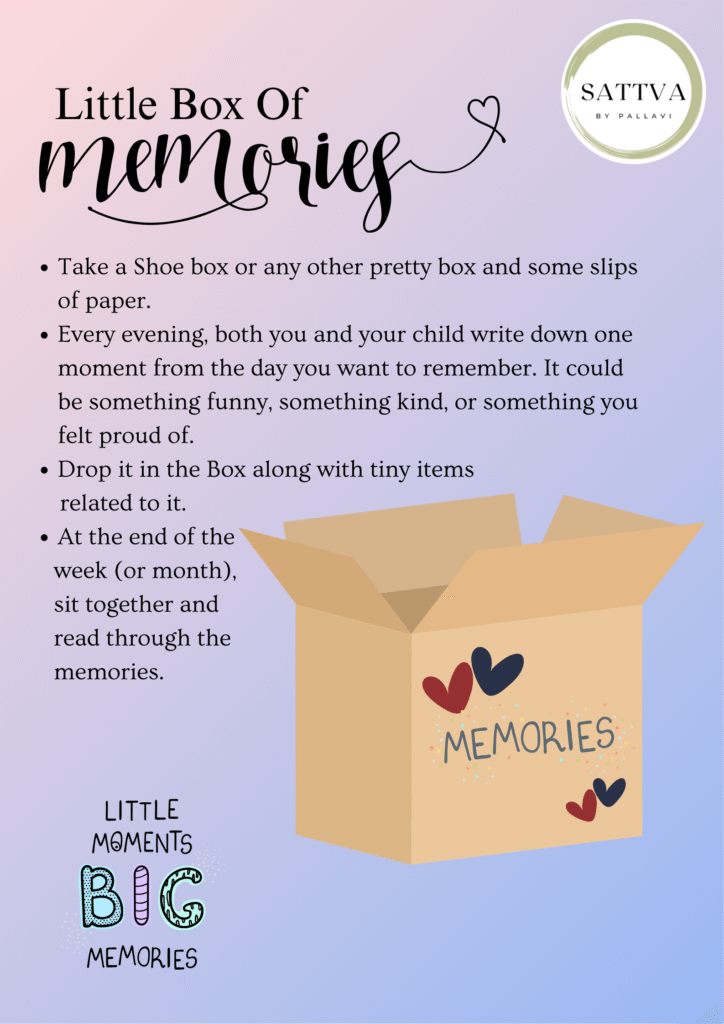Parenting often brings us face-to-face with echoes of our own childhood. Think back, do you remember how bad it felt when your parent dismissed your feelings, ignored your questions, or made you feel small for simply being yourself? Was it missing Connection? Now pause for a second. Are you okay being the reason your child …
Parenting often brings us face-to-face with echoes of our own childhood. Think back, do you remember how bad it felt when your parent dismissed your feelings, ignored your questions, or made you feel small for simply being yourself? Was it missing Connection?
Now pause for a second.
Are you okay being the reason your child feels that same way?
This is what breaking the circle means. We can choose to stop repeating patterns that caused us hurt. Every word, every gesture, every conversation is a chance to build connection instead of distance.

Why Connection Matters More Than Control
Kids and teens may not always have the words to say it, but what they crave most is to be seen, heard, and understood. When parents lean only on authority, rules, or “because I said so,” the relationship risks becoming one-sided. Over time, this can create walls instead of bridges.
Connection doesn’t mean you stop setting boundaries. It means showing your children that even within rules, they are valued, respected, and safe to express themselves.
Listen Without Always Fixing
One of the most powerful gifts you can give your child is the space to express themselves without rushing in to solve everything.
When kids share their struggles, parents often jump to advice or solutions: “Don’t worry, just focus harder.” or “That’s nothing, you’ll be fine.” While well-meaning, these responses can make children feel unheard or dismissed.
Instead, try simply listening and validating:
- “That sounds really tough. I can see why you feel that way.”
- “I’m glad you told me. I’m here with you.”
Children don’t always need solutions right away they need to know their emotions are safe with you. Once they feel understood, they’ll be more open to guidance.
Breaking the Cycle Through Communication

Instead of repeating the patterns of silence, criticism, or indifference many of us experienced, we can practice curiosity, compassion, and empathy with our kids. Small shifts in how we talk can create big changes in how they feel.
Here are more connecting statements parents can use to engage with their children:
- What was the most interesting thing you learned today?
- Did anything surprise you at school today?
- Was there a moment today that made you feel proud of yourself?
- Is there something you’re finding challenging right now? How can I help?
- Who did you enjoy spending time with today, and why?
- What’s something you’re excited to work on or improve this year?
- Did anything happen today that made you feel frustrated? How did you handle it?
- What’s something kind you witnessed or did today?
- If you could relive any moment from today, which one would it be?
- Is there something you’re looking forward to tomorrow?
- What’s one thing you’d like to try or learn more about this week?
- Has anything been on your mind lately that you’d like to talk about?
- What’s been the best part of your week?
- Did anyone bring a smile to your face today?
- In what ways did you assist someone today? Did anyone offer you help? How did that make you feel?

These open-ended questions invite kids to share more than just one-word answers. They show your child that you care not only about what they do but also about how they feel.
An Activity to Deepen Connection: The “Memory Box”
Here’s a simple but powerful way to bond with your child:
✨ The Memory Box Activity ✨

This creates not only a ritual of sharing but also a growing collection of positive moments you’ve built together. It reminds your child that their life matters, their feelings matter, and most importantly, you see them.
Closing Thought
Parenting is never about being perfect. It’s about being willing to pause, reflect, and choose differently. Breaking the circle doesn’t happen overnight, but every small step counts.
Your child may not remember every lecture or rule, but they will always remember how you made them feel. 💙
Credits: Therapist Christymol







